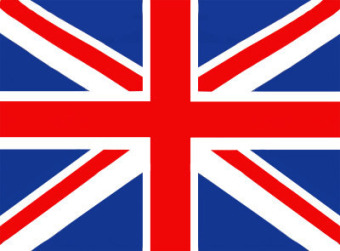Patient Protection & Affordable Care Act, A British Perspective
 By Dr. Diego Fox
By Dr. Diego Fox
Patient Protection and Affordable Care Act, a British perspective
It has long been a commonly held British view that falling ill in the United States of America can be a very expensive business for the patient. When President Obama declared his intention to address this problem, many here naturally assumed he intended to introduce an American version of our NHS. We also naturally assumed that this idea would be almost universally welcomed by Americans. The subsequent bitter and sustained opposition is something few Brits can understand, particularly when it is seen that the proposed changes are, to us, just a tiny step towards what we were perhaps expecting.
To understand our perception you first would have to understand a little of our system of healthcare.
At the beginning of the twentieth century in the coal mining communities of the Welsh valleys a new means of health provision was being tried. Every employee would contribute a small part of his wages into a central fund. This fund was used to enable the community to employ one or more doctors, who would then provide health care to the miners and their families. No payment was required for treatment, but only those who paid into the scheme could benefit. Some schemes were even able to provide for a hospital, such as the one at Tredegar, which opened in 1904.
These schemes were run by trustees, one of whom was Aneurin Bevan, who subsequently became government Minister for Health, just after the second world war. In 1948 he applied exactly this scheme on a national scale as the National Health Service. Literally overnight, on July 5 1948, almost every hospital in Britain became state owned and run, and almost every hospital doctor became a state employee. General practitioners, although supposedly independent, were nonetheless paid by the state also. The system is paid for by a specific tax, “National Insurance”, paid by all employees, and there is also an employer contribution for each worker. This contribution is compulsory.
Despite 15 major reorganisations since 1948 these principles remain. Most hospitals remain state owned, and virtually all doctors are employed, directly or indirectly by the state. To this day no patient is ever asked for money for NHS treatment. The medical profession, who in 1948, bitterly opposed the inception of the NHS are now almost to a man totally committed to it. Any perceived threat to the NHS arouses the most bitter and universal opposition from doctors and the general population alike.
Compared to the creation of the NHS, the US reforms are modest indeed. In essence there is to be some extension in eligibility for the already existing medicare and medicaid. There is also to be improvement in affordability of health insurance, and assistance with premiums for those of low/moderate income. These are hardly ground shaking changes. Also firms are to be encouraged to make provision for employee’s healthcare, something better employers do already.
So what the objectors are so angry about is difficult to understand, certainly to us in the UK. I have had a good look at a web site called obamacaretruth.org where many of the arguments are cited to try and get a feel for the objections and I am still really none the wiser. I was particularly interested that they cited the Stafford scandal, implying that the entire NHS is like that. Now the NHS has many imperfections and if I were to go into them this article would double in length. But In fact although one or two places have caused serious concern the vast majority of our patients in the UK view their experiences of NHS care in a very positive light. Most are grateful and appreciative. Particularly those who have had expensive treatment of life threatening conditions, without having to worry about paying for it.
I am left with the impression that the objections boil down to a perception that those who will get free healthcare are somehow “freeloading”, as if they get deliberately ill in order to get free treatment.
So should the American medical profession have anything to fear from the reforms? I can’t see that they should. Unlike the NHS, American hospitals are not about to be taken over by the government, and doctors are not about to be forced to work for the state. As far as doctors are concerned it should be very much business as usual.
It has long been a source of puzzlement to Europeans that the richest country in the world should be so reluctant to provide decent health cover for it’s poor. Is this because in Europe decent healthcare is considered a right, whereas in the US it is considered a commodity? It is my view that one of the hallmarks of a truly civilised nation is that it looks after it’s sick. Aneurin Bevan thought exactly the same when he said, “We ought to take pride in the fact that, despite our financial and economic anxieties, we are still able to do the most civilised thing in the world - put the welfare of the sick in front of every other consideration.”
The US healthcare reforms are a long way short of providing this ideal, but they are a small step in that direction. If even this small step fails the rest of the civilised world will simply not understand.
About: Dr. Diego Fox (Dr Zorro) is a full time NHS Consultant in his late 50s. He blogs at http://vulpesmax.blogspot.com





 Post a Comment
Post a Comment
